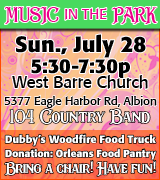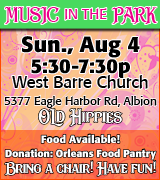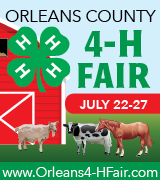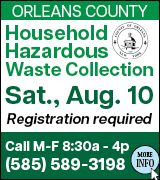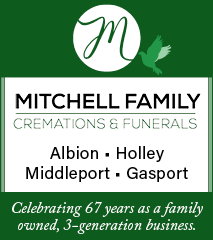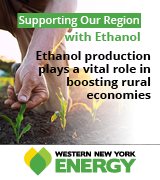Russian invasion stirs memories for former Albionite whose British family took in Hungarian refugees
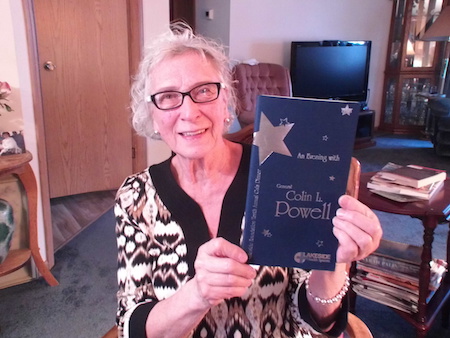
Photo by Ginny Kropf: Cora Goyette, a former Albion resident, was photographed last fall when she visited Medina. A native of Great Britain, she is gravely concerned about the conflict in the Ukraine.
Cora Goyette has ample reason to be concerned about the conflict unfolding in the Ukraine, with Russia recently bringing war to the country and taking control of the Chernobyl nuclear site.
Goyette lived in Albion for many years, where she was instrumental in raising more than a million dollars to build the Martin-Linsin Residence for Hospice.
She often shared her memories of growing up on the White Cliffs of Dover during wartime England.
Goyette also worked in the United Kingdom during two decades of the IRA reign of terror, she said.
“These life’s experiences formed who I am today,” she added.
“As I watch the developments in Europe, I am reminded of my early childhood days,” Goyette said from her home in Rochester. “In 1956, as the Hungarian uprising unfolded, the UK government put out a call to all Britons to open their hearts and homes to Hungarian refugees. Even though our homes were very small in comparison to those in the United States, there was a tremendous response, and my family was no different. The four children, of which I am the eldest, were all squashed into one bedroom, and within a short time, two young men arrived on our doorstep.
“George and Stefan instantly became a part of our family, despite the language barrier,” she said. “They worked as boiler stokers in our large hospital and remained with us for two years. My parents so embraced them and during that time, we learned much about their culture, food, and even made a crude zither, a traditional musical instrument. Eventually, they moved to a large city and subsequently, back to Hungary.”
Goyette said they also spent many holidays with an uncle, who was a sheep farmer in North Wales.
“It was an idyllic time, especially during the lambing season, which is in early springtime,” she said. “With 1,500 ewes, it was a paradise to play with so many lambs, twins and triplets, and bottle feeding them.”
This is where her concern comes now, with her memories of the Chernobyl disaster in 1986 and Russia having just seized that city.
“Wales is approximately 2,000 miles from Chernobyl, and the soil is very different from other parts of the country,” Goyette said. “The decaying nuclear particles were blown and washed out of the clouds and into the fields.”
Goyette said usually such particles would be absorbed into the soil but because of the nature of the soil in North Wales, it was instead absorbed by the vegetation, which animals ate.
“There were national concerns following the 1986 nuclear disaster, and the government banned the sale of sheep in many regions of the north as a precaution,” Goyette said. “This had a huge impact on the farming community. Worse was to come. What was not anticipated was the fact the vegetation, which was the main source of food, immediately absorbed the nuclear particles, resulting in many, many lambs being born the following spring with deformities of the hindquarters.”
While Goyette said she has no knowledge of other statistics, she was a witness to this tragedy and how it affected her family.
“As I watch the world situation now unfolding, I am reminded both of the power of communities and cultures when they come together, plus the result of man’s inhumanity to man,” she said.




















